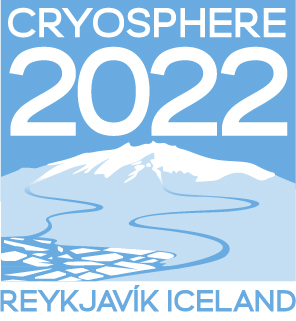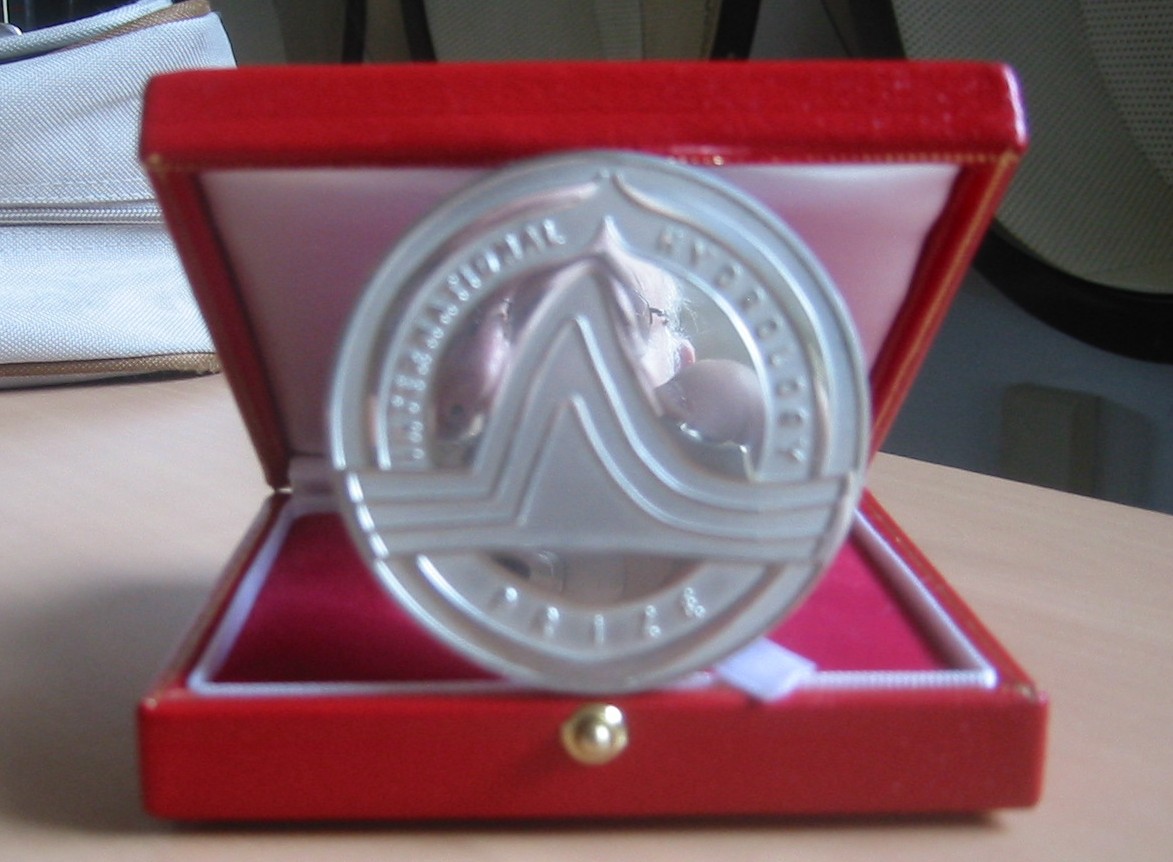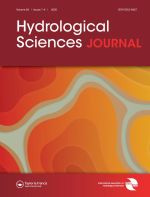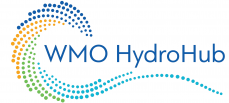IAHS News
Cryosphere 2022 Symposium in Iceland in August
INTERNATIONAL SYMPOSIUM ON ICE, SNOW AND WATER IN A WARMING WORLD

The Cryosphere 2022 symposium will be held in Iceland on August 21-26. Registration is now open and abstract submission has been extended to April 1.
As a result of global atmospheric and ocean warming, all components of Earth´s cryosphere are now changing at a dramatic pace. More than a quarter of the planet´s land surface receives snow precipitation each year and declining snow cover in many parts of the world is causing concern over the future of snowmelt as a water resource. Mass loss continues from glaciers and ice-fields in all mountainous regions of the world and from Arctic and sub-Arctic ice caps. The two large ice sheets in Greenland and Antarctica are major contributors to rising sea-level and may have begun to show signs of irreversible mass loss. The areal extent and thickness of Arctic sea ice continues to decline and the resulting albedo changes may be affecting winter weather patterns in North America and Eurasia. Increasing attention is being given to hazards due to thinning of lake and river ice cover and permafrost degradation, including slope failure.
Sessions co-organized by IAHS are the Tuesday session on “Snow and ice as a water resource” and the Friday session on “Monitoring systems, research gaps, new technologies”. See preliminary schedule on the symposium website.
The new Second Circular is now available online.
2022 IAHS Tison winner announced
IAHS are pleased to announce that the 2022 Tison award goes to Alexander Ross (USA) for his work on the 2020 Hydrological Sciences Journal paper:
The paper was co-authored by Heejun Chang (USA) who is not eligible for the Tison Award, age-wise.
This award is prestigious with a 1000 US$ prize and a 1 year subscription to HSJ sponsored by Taylor & Francis the publisher of Hydrological Sciences Journal.
The paper is free to access at: https://www.tandfonline.com/doi/abs/10.1080/02626667.2020.1761023?journalCode=thsj20
The IAHS Tison Award, established in 1982, aims to promote excellence in research by young hydrologists. The Award is granted for an outstanding paper published by IAHS in a period of two years previous to the deadline for nominations. The description of the award is available at https://iahs.info/About-IAHS/Competition--Events/Tison-Award.do
2022 International Hydrology Prize medallists
IAHS are pleased to announce the award of the International Hydrology Prize for 2022 to:
Dooge medal - María José Polo Gómez, Spain
Volker medal - Francis Chiew, Australia

Nominations for the annual Prize are made by National Committees to IAHS, National Committees to the UNESCO-IHP or National Hydrological Advisors to the WMO and forwarded to the Secretary General of IAHS for consideration by the Nomination Committee. The Committee consists of the President and a Vice-President of IAHS and representatives of UNESCO and WMO.
As of 2014, two medals are awarded under the International Hydrology Prize: the Dooge medal and the Volker medal. Both medals are intended to distinguish outstanding achievements by hydrological scientists but with a different focus. The Dooge medal is aimed at fundamental contributions to the science of hydrology, whereas the Volker medal is aimed at outstanding applications of hydrological science for the benefit of society at large.
https://iahs.info/About-IAHS/Competition--Events/International-Hydrology-Prize.do
Our warmest congratulations go to both recipients.
The International Hydrology Prize medals for 2020, 2021 and 2022 will be awarded during IAHS 2022 Scientific Assembly in Montpellier, France alongside celebrations of the 100th anniversary of IAHS.![]()
HSJ volume 67 personal subscriptions now due
HYDROLOGICAL SCIENCES JOURNAL
Editor in Chief: Attilio Castellarin
Co-Editors: Stacey Archfield & Aldo Fiori
 Hydrological Sciences Journal provides a forum for original papers and discussion of significant developments in hydrological science and practice, and related disciplines.
Hydrological Sciences Journal provides a forum for original papers and discussion of significant developments in hydrological science and practice, and related disciplines.
The Impact Factor of HSJ is 3.787 (©2021 Clarivate Analytics, 2020 Journal Citation Reports®) with a 5-year Impact Factor of 3.5, ranking it 24th out of 98 journals in the Water Resources category (Q1).
Institutions and libraries should order direct from Taylor & Francis: www.tandf.co.uk/journals/thsj, or their usual agent.
Special journal subscription rates are available to IAHS Members: £27.00 for a personal online subscription, and £48.00 for a personal online + print subscription. IAHS Members should subscribe by contacting [email protected].
Access to the back archive is free - explore 61 volumes of cutting-edge research and discovery.
IAHS members from the following countries are eligible for 80% discount on book prices, subject to the minimum price restriction, and free online access to HSJ via the IAHS website:
Afghanistan, Albania, Algeria, Angola, Armenia, Azerbaijan, Bangladesh, Belarus, Belize, Benin, Bhutan, Bolivia, Bosnia and Herzegovina, Botswana, Bulgaria, Burkina Faso, Burundi, Cabo Verde, Cambodia, Cameroon, Central African Republic, Chad, Colombia, Comoros, Congo, Côte d'Ivoire, Cuba, Democratic People's Republic of Korea, Democratic Republic of the Congo, Djibouti, Dominican Republic, East Timor, Ecuador, Egypt, El Salvador, Eritrea, Ethiopia, Fiji, Gabon, Gambia, Georgia, Ghana, Guatemala, Guinea, Guinea-Bissau, Guyana, Haiti, Honduras, India, Indonesia, Iran (Islamic Republic of), Iraq, Jamaica, Jordan, Kazakhstan, Kenya, Kiribati, Kosovo, Kyrgyzstan, Lao People's Democratic Republic, Lesotho, Liberia, Libya, Macedonia, Republic of, Madagascar, Malawi, Mali, Marshall Islands, Mauritania, Micronesia, Moldova, Mongolia, Montenegro, Morocco, Mozambique, Myanmar, Namibia, Nepal, Nicaragua, Niger, Nigeria, Pakistan, Palestine, Papua New Guinea, Paraguay, Peru, Philippines, Rwanda, Saint Vincent and the Grenadines, Samoa, Sao Tome and Principe, Senegal, Serbia, Sierra Leone, Solomon Islands, Somalia, South Africa, South Sudan, Sri Lanka, Sudan, Swaziland, Syrian Arab Republic, Tajikistan, Tanzania, Thailand, Togo, Tonga, Tunisia, Turkmenistan, Tuvalu, Uganda, Ukraine, Uzbekistan, Vanuatu, Vietnam, Yemen, Zambia, Zimbabwe
List of eligible countries with GDP per capita smaller than the median of all countries of the world (UN data, 2016)
N.B.This list is subject to revision.
WMO Hydrohub Innovation Workhop on Hydrometry
As a partner of WMO, IAHS would like to draw your attention to the upcoming virtual Innovation Workshop on hydrometric monitoring.
Background: The WMO HydroHub Phase II was launched on 1 September 2021 for a 5-year period, to enhance capacities of National Meteorological and Hydrological Services (NMHSs) in sustainable operation and effective delivery of hydrological monitoring services for disaster risk reduction, social and economic development and environmental protection. Advancing the use of innovative measurement approaches and technologies in operational hydrometry is a core aim of the HydroHub and will be the focus of a number of its activities including Innovation Calls and Innovation Workshops. Full details are available in the 2020 paper Dixon, H., et al., 'Intergovernmental cooperation for hydrometry – what, why and how?'
The Innovation Workshop will thus focus on identifying areas of innovation that the WMO HydroHub could support during its Phase II helping to ensure its activities help build sustainable capability within National Meteorological and Hydrological Services. The event will explore recent advances in hydrometric monitoring approaches and technologies and the current needs of operational monitoring agencies around the world.
Date of event: February 2 and 4, 2022
Format: An interactive virtual event on Zoom with six segments
Organizers: The WMO HydroHub, the International Association of Hydrological Sciences (IAHS) MOXXI Working group and the WMO Public-Private Engagement Office.
The MOXXI Working Group (Measurements and Observations in the 21st Century) has the task to “promote the advancement of novel observational techniques that leads to new sources of information to help better understand the hydrological cycle”. More information can be found in the Tauro, F., et al., 2018 paper 'Measurements and observations in the XXI century (MOXXI): innovation and multi-disciplinarity to sense the hydrological cycle.'
View HERE to get more information and register for the event.


